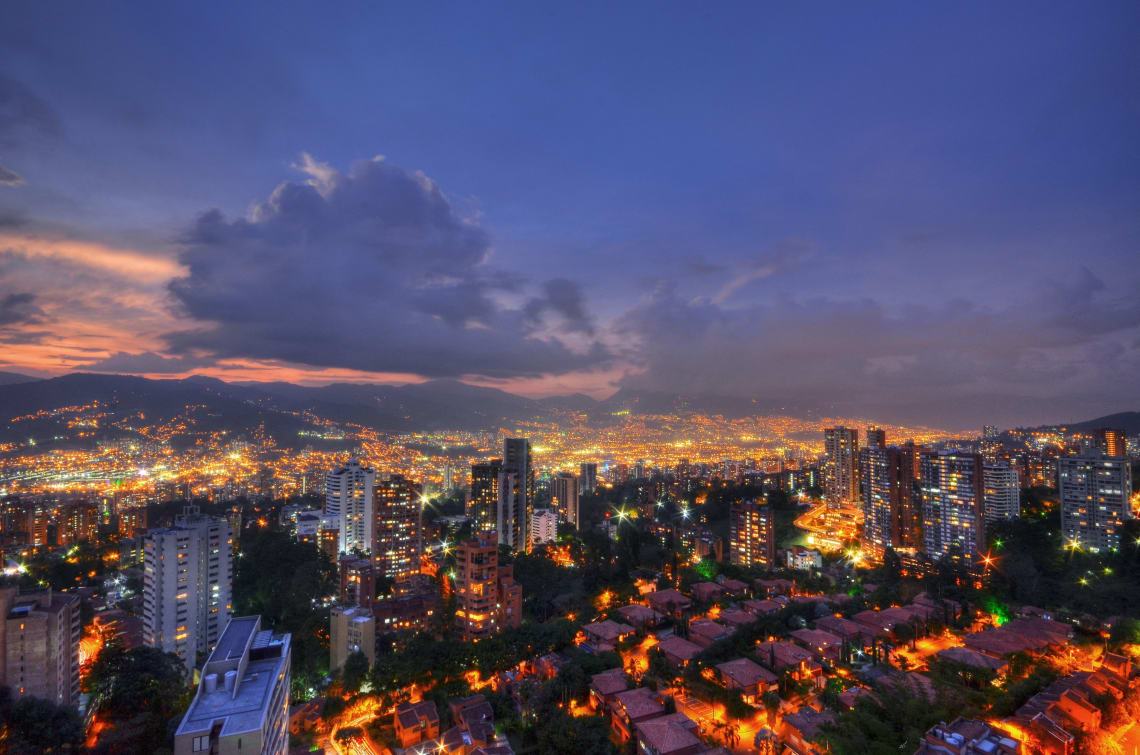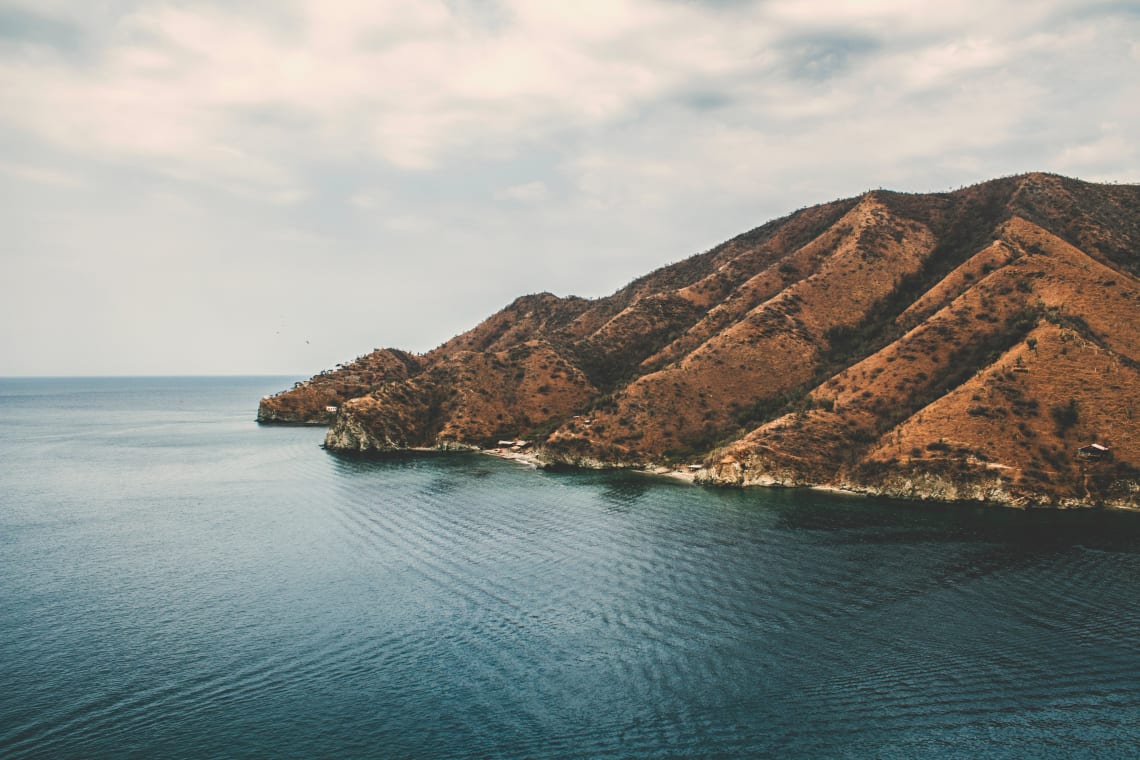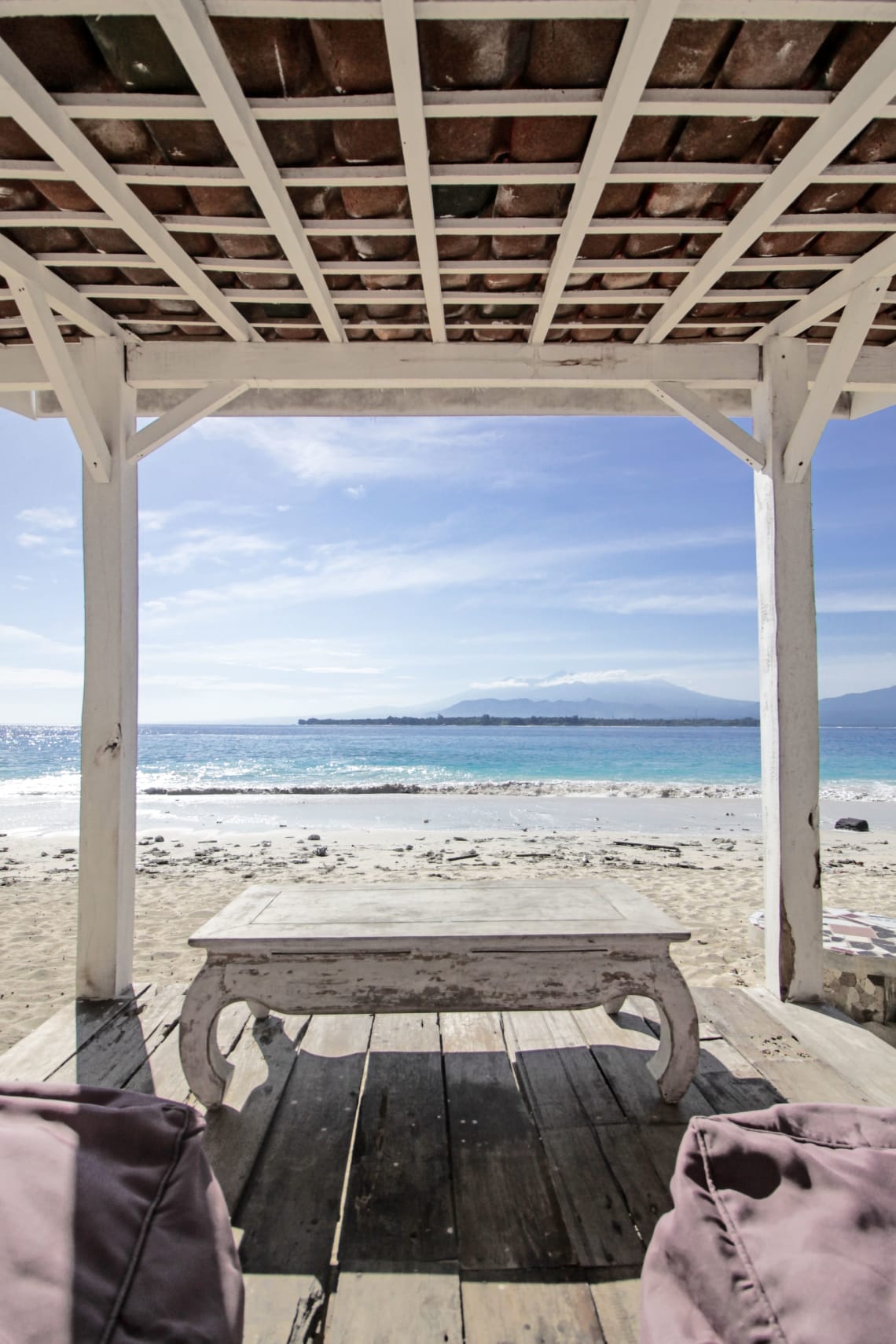
- Travel connected
- Become a member by 02/28/2026 and get 10% OFF at Holafly!
Living the digital nomad lifestyle is not all sunshine and rainbows but it's the most rewarding way for me to live. Read on to discover how to be a digital nomad, and stay productive, too.
8min

During many winter evenings not long ago, I sat typing in my Toronto apartment long after my nine-to-five workday finished. Snowstorms raged outside as I crafted all sorts of narratives late into the night adamant to meet my deadlines outside of my regular, salaried job.
My assignments rolled in steadily. I went to journalism school in Toronto and have been working in the industry as a reporter, editor and freelance writer ever since. Basically, I've had a stake in this whole writing game since 2009 and so by the time I decided to become a digital nomad, I had amassed a list of contacts.
In the fall and winter leading into 2018, I was at my busiest: I still held my job as a web editor but I was doing double time moonlighting as a freelancer so that by the time I landed in Colombia, I wouldn't be out of work.

Becoming a digital nomad requires balancing work and play, and more often than not, it's mostly just work. (At least in my experience anyway...). First off, before launching into my story, I should probably offer my definition of what a digital nomad is in the first place.
As its name suggests, a digital nomad is a person who works digitally, as in online, and tends to be nomadic, as in they move around a lot. For someone who chooses the digital nomad lifestyle, I don't think there's really a set time frame of how long they have to be on the move... or how frequently.
Find a job that works and you can move every week or just a couple times a year. The definition is about as flexible as the lifestyle.
As for me, I decided to do the whole working while traveling thing about nine months before I actually hauled my bag to the airport and got on a flight to Colombia. I didn't just up and leave. And contrary to what many of my peers probably think, I put in a lot (I repeat A LOT) of leg work before I made this dream of working and living abroad a reality.
My most recent photos on Instagram show a trip to the coast of Ecuador (yes, I worked every day) and when I left Canada, they showed a ski trip in the Canadian Rocky Mountains juxtaposed by high rise buildings with an Andean backdrop in Medellin, Colombia.
They do not show those frigid nights spent working on assignments while my friends met for pints of dark beer in local pubs. They do not show me walking home in the cold, dark streets of Toronto after having worked a full day just to take a quick, hot shower, eat a sandwich and sit at my desk for another four hours.
Then, I got through those long evenings with my favorite music, lots of takeout dinners, a heavy dose of dedication and frequently, a beer. I thought of sandy Colombian beaches. I thought of trying new foods and learning Spanish. I thought about the new friends I'd meet, the stories I'd publish, the new clients I'd form relationships with and mostly, exploring Medellin and the Colombian countryside.
I didn't know then that I'd end up living in Ecuador... but the imagery of South America got me through as I counted down those nine months, preparing as much as I could the whole time.

I bring up this story, the story of my transition into the independent and free life of a digital nomad, to illustrate that contrary to what Instagram feeds or travel blogs may show, there's a lot of work that goes on behind the scenes.
I work really hard every single week to make sure that I can continue to live this lifestyle. What started off as a sabbatical became a life of full-time travel, and it's not all sunshine and rainbows but it's the best decision I've ever made and it is the most rewarding way for me to live.
Below, I'm sharing some of the tricks and tips I've picked up on not just how to become a digital nomad, but how to stay productive too. All of the below are based on my own personal experience.

Becoming a digital nomad shouldn't require that you work outside of your skill-set or switch to a different industry because you feel you have to or should. (If your current gig has you run-down and burnt-out and you're looking to try something new, that's a different story.)
Make your skills and strengths work in your favor by finding a way to implement them into a remote position. Perhaps you do your company's graphic design. Start to collect clients that will hire you to do this remotely. Maybe you're responsible for the social media accounts. Many clients hire remote social media managers too.
The goal is to tweak what you're already doing to make it digital nomad friendly. Starting from square one with something new means you need to first gather experience before clients will trust you and pay you a decent wage. Plus, starting with something new means you have no idea if you'll like it or even be good at it. That's not the safest plan...
More inspiration in Get paid to travel: 9 ways to make money on the road.
In my case, life as a digital nomad in Ecuador means that I have to be my own boss and set my own schedule. I don't have an office to go into, and if I travel, I have to make sure I set aside time to work.
Because of all this, I have to be pretty damn sure I'm passionate about my work so that it gets done. I can honestly say that I'm motivated to start work every single morning so much that I often choose to write on weekends and in the evenings instead of seeing friends. I love my work. I enjoy working with every single one of my ten clients and I love having a range of projects going on at any given time.
If wanting to become a digital nomad, choose work you like. Remember, the idea is to improve your quality of life so you don't want to be dreading your work and you certainly don't want to be uninterested in your assignments.
I have a degree in journalism. When I decided to become a journalist and writer, I was 18 years old and I've been building on this skill ever since. Ten years ago, the term "digital nomad" didn't exist but part of my motivation of going into this line of work was to see the world.
Having a credential and background in journalism, writing and editing made my transition into independent freelance life abroad so much easier. For this reason, I recommend getting a credential and building on something if that's not the case already.
If I had a nickel for every time someone in a hostel asked me how they can do what I do, I'd have a lot of money in the bank. I've met a lot of people during my travels who are looking for a quick-and-easy way into digital nomad life.
I don't know if such a way exists but that hasn't been my experience. Writing can be one of the harder freelance gigs too if you don't know what you're doing because it's oversaturated, good clients can be hard to find and pay can be low. It didn't happen overnight for me and so I'd suggest doing a lot of research, homework and planning. That is, in my opinion, the wisest way to set yourself up for success.
Many online, remote positions pay less than traditional office roles. In my case, the pay cut was well worth it because I traded those extra bucks for experiences in new countries.
If working remotely means your income is going to decrease, I suggest cutting down on lifestyle spending sooner rather than later. For me, this means living more simply. I buy my groceries at markets, I take buses whenever traveling, I drink at friends' apartments instead of fancy bars and I cook all my own meals.
One of the best pieces of career advice I've ever heard is to treat your own time the same as you would for a client meeting or professional appointment.
For example, if you scheduled a work meeting with someone for 2:00 p.m. on a Wednesday afternoon, you'd put it on your calendar and show up. If you set a doctor's appointment for 9:00 a.m. tomorrow morning, you'd plan your day around that.
In order to stay productive as a digital nomad, you need to do the same for your own time. Recently, I did a trip along the coast of Ecuador. Each morning, I stuck to a work schedule no matter what.
When visiting a new city, I do the same in my hostel by setting aside a quiet time to work. I stick to that even if new friends are going for a drink and even if I'm tired from the day's activities.
I've worked from beach restaurants while friends indulged in cocktails. I've stayed back from group dinners on girls weekends to get two or three hours of work done. If you want to be a digital nomad, this is the trade off. The only way I can work for myself from Ecuador is if I continue knowing when to say no.
Interact with people who understand what you're doing because they're in the same boat. I regularly touch base with freelancers and entrepreneurs in Toronto because we have the same unpredictable schedule and similar grievances.
I have friends here in Cuenca who also work for themselves, own their own businesses and freelance write. I regularly read digital nomad blogs, and I'm part of several similar online remote communities where I can reach out for advice or network. Setting up and making use of these communities is, in my experience, the best way to stay motivated and find relevant, professional guidance.
When becoming a digital nomad, plenty of people will judge. Several people see your Instagram and think you don't have a job or don't take work seriously. For me, having a community of people who understand what it's actually like has been the best way to counteract these opinions.

A year and three months into this lifestyle, that's how I feel. Living this lifestyle is the best decision I've ever made for myself and so, while it works, I'll continue to do it.
I painted a picture of me working steadily throughout the winter while imaging afternoons on sandy beaches and life exploring diverse South American terrain. I got there. I made that dream a reality.
Imagine me two weeks ago in the small coastal town of Manglaralto. Staying at a friend's beach house, I woke up at 7:30 a.m. and poured myself a cup of coffee. While she taught English online to students in China, I pitched editors and finished two batches of research notes for a podcast I work on.
When our work was done, we took the dogs for an early afternoon run down to the beach where the sky was clear, foamy waves were breaking on the beach and ocean breezes were a breath of fresh air. I'll take that over my former office life any day.
Write here your questions and greetings to the author
Seb
May 29, 2019
Great article! "Whenever the Wi-Fi is, there is my home" fits here perfectly ;)
عمر
Jan 05, 2023
My name is Omar from Iraq. I would like to obtain a visa to travel to see my girlfriend, who has been living in Canada for more than 8 years. Is it possible to get an invitation to Canada or any other European country to meet there? Please help me, 😥😥😥
Lisa
Mar 03, 2023
My Name ALiice from TX USA. After 12years of marriage, me and my husband have been into one quarrel or the other until he finally left me and moved to California to be with another woman. I felt my life was over and my kids thought they would never see their father again. I tried to be strong just for the kids but I could not control the pains that tormented my heart, my heart was filled with sorrows and pains because I was really in love with my husband. Every day and night I think of him and always wish he would come back to me, I was really upset and I needed help, so I searched for help online and I came across a website that suggested that Dr. Mahlangu can help get ex back fast. So, I felt I should give him a try. I contacted him and he told me what to do and I did it then he did a Love spell for me. 24 hours later, my husband really called me and told me that he missed me and the kids so much, So Amazing!! So that was how he came back that same day, with lots of love and joy, and he apologized for his mistake, and for the pain he caused me and the kids. Then from that day, our Marriage was now stronger than how it was before, All thanks to Dr. Mahlangu. he is so powerful and I decided to share my story on the Internet with Dr. Mahlangu real and powerful spell caster who I will always pray to live long to help his children in the time of trouble, if you are here and you need your ex back or your husband moved to another woman, do not cry anymore, contact this powerful spell caster now. Here's his Whatassp:+27787390989
Lisa
Mar 03, 2023
My Name ALiice from TX USA. After 12years of marriage, me and my husband have been into one quarrel or the other until he finally left me and moved to California to be with another woman. I felt my life was over and my kids thought they would never see their father again. I tried to be strong just for the kids but I could not control the pains that tormented my heart, my heart was filled with sorrows and pains because I was really in love with my husband. Every day and night I think of him and always wish he would come back to me, I was really upset and I needed help, so I searched for help online and I came across a website that suggested that Dr. Mahlangu can help get ex back fast. So, I felt I should give him a try. I contacted him and he told me what to do and I did it then he did a Love spell for me. 24 hours later, my husband really called me and told me that he missed me and the kids so much, So Amazing!! So that was how he came back that same day, with lots of love and joy, and he apologized for his mistake, and for the pain he caused me and the kids. Then from that day, our Marriage was now stronger than how it was before, All thanks to Dr. Mahlangu. he is so powerful and I decided to share my story on the Internet with Dr. Mahlangu real and powerful spell caster who I will always pray to live long to help his children in the time of trouble, if you are here and you need your ex back or your husband moved to another woman, do not cry anymore, contact this powerful spell caster now. Here's his Whatassp:+27787390989
Mohamed
May 10, 2023
Hello, I am Mohamed from Egypt. I am looking for a voluntary job. I am 29 years old